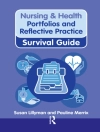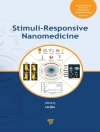At last, a book that offers not only an overall perspective of nursing intervention and outcome research but also theory-driven guidelines for future study. Evaluating Nursing Interventions provides clinicians and students alike with a clear explanation of the problems encountered in outcomes and intervention research and then proceeds, via the Intervention Theory, to show how these studies can be undertaken reasonably and comprehensively. The authors first relate outcomes and interventions research to the quality of care. They then review the conventional approach to evaluation and the elements and sources of the Intervention Theory approach to effectiveness research. Characteristics of clients and health care professionals, intervention variables, and outcomes are also considered, concluding with implications for future research in effectiveness.
Nurses and other health professionals recognize the need to demonstrate that their care is high quality, effective, and also cost-effective; Evaluating Nursing Interventions helps them evaluate their programs to meet this need.
Содержание
Introduction
Outcomes Research
The Theory-Driven Approach to Effectiveness Research
Characteristics of Clients
Intervener and Setting Characteristics
Intervention Variables
Outcomes-Related Factors
Implications for Effectiveness Research
Об авторе
Carrie Jo Braden, Ph D, RN, FAAN, is a professor at the School of Nursing, University of Texas Health Science Center at San Antonio. During her tenure as the school’s associate dean for Research, she began mentoring Dr. Gealogo Brown through the Undergraduate Research Scholars program and eventually served as chair of her dissertation committee. She has published many articles on aspects of chronic illness, published textbooks in community health and in theory-based intervention, and has been awarded several research grants from the National Institute of Nursing Research, National Cancer Institute, and the National Institute of General Medical Science. Her program of research has included clinical trial tests of self-help promoting intervention effectiveness for women receiving breast cancer treatment. Her current research focuses on educational interventions to promote commitment to a research career among students from underrepresented groups. For over 30 years she has taught doctoral-level students on theory-based evaluation and theory-based intervention.












